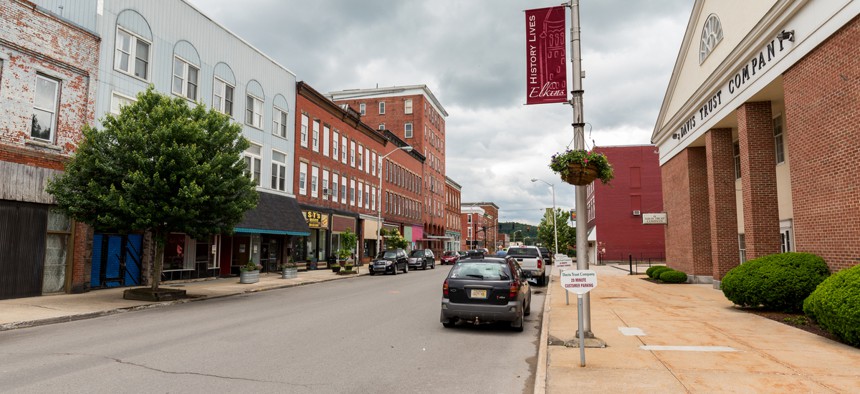West Virginia to Start Statewide Distribution of Naloxone to First Responders

Elkins, West Virginia Shutterstock

Connecting state and local government leaders
“This is not the end all answer to the opioid crisis, but it is certainly a significant step forward in the right direction,” according to Dr. Rahul Gupta, the state’s health officer.
After purchasing a $1 million supply of naloxone, the West Virginia Department of Health and Human Resources will start distributing the overdose-reversing drug to first responders statewide, the department announced Tuesday. That’s about 34,000 doses, according to Dr. Rahul Gupta, West Virginia’s state health officer and commissioner of the department’s Bureau for Public Health.
About 22 percent, or 7,800 doses, will be distributed among the West Virginia State Police; 24 percent, or 8,200 doses, to the State Fire Marshal’s Office for fire departments; and 29 percent, or 10,000 doses, to emergency medical services in the state.
West Virginia officials have identified eight high-priority counties—Berkeley, Cabell, Harrison, Kanawha, Mercer, Monongalia, Ohio and Raleigh—where local authorities will receive 1,000 doses each.
The state has been among those hardest hit by the opioid abuse epidemic. Last year, more than 900 people in West Virginia died from drug overdoses.
In recent years, more and more police departments across the country have trained officers to administer naloxone when they suspect someone has overdosed instead of waiting for paramedics to arrive.
“Naloxone helps keep people alive, so they can have the opportunity to enter counseling and treatment,” Gupta said in the state’s announcement. “This is not the end all answer to the opioid crisis, but it is certainly a significant step forward in the right direction, as recommended in the state’s Overdose Response Plan,” which can be found here.
The naloxone kits, purchased with funding from the West Virginia Legislature to DHHR’s Office of Drug Control Policy, include a 2mg naloxone syringe and atomizer. The department said that it does not expect that its naloxone supply to be subject to a new Food and Drug Administration recall of Hospira, a brand of naloxone West Virginia does not use.
Naloxone can also be a life-saving tool to help protect first responders from accidental overdoses due to fentanyl exposure, a growing concern for police officers, firefighters and emergency medical technicians.
Michael Grass is Executive Editor of Government Executive’s Route Fifty and is based in Seattle.

NEXT STORY: Coastal Flooding Likely to Continue Breaking Records





